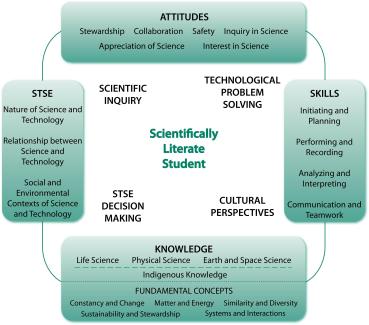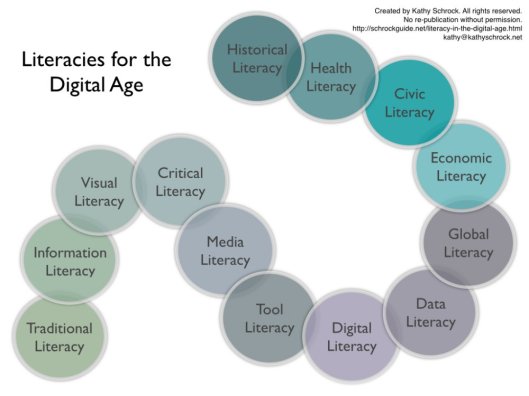It’s finally done!
It ended up being more of a companion to the science curriculum and the digital citizenship education guide. As I went through making this document and previously considered – digital literacy seemed the be the root theme of what I was supporting in the creation of the document. However, as I began creating my lesson plans – I learned that many of the other aspects of Ribble’s Nine Elements would be at work when actually trying to pursue the specific lessons in my classrooms (the only one I had a hard time working in was Digital Commerce).

A new visual I made incorporating responsible use with scientific use.
As I was working on it and considered my growth in science education that I experienced this year in part due to my work in ECI 842, I realized the importance I find in multiple perspectives in science as having significant value. This not only made me consider including the connections of implementing digital citizenship in science education to the Truth and Reconciliation Commission of Canada’s Calls to Action, but it also helped me dig deeper into the science curriculum itself.
In my last post I mentioned how in-depth the curriculum was, and how this helped me check my ambition of completely dissecting the curriculum and assigning connections in it to digital citizenship.
However!
I didn’t realize how well they had described what I think science is and should be in the aims and goals of the curriculum. This really made me question what all I missed as a biology minor rather than being a secondary science major in my undergraduate degree, because I originally planned these assignments around the thinking that some of my perspectives weren’t found in great depth in other science classrooms in Saskatchewan (they still might not be, but it is not because of the curriculum).

Aims and Goals via SK Biology 30 Curriculum
I tried to consider why I felt this way, and in talking with my fiance, we considered the idea that I don’t get to talk to very many other science educators except for the four(ish) in my high school – none of which specialize in Biology like I do, my cooperating teacher and predecessor retired, but without teaching the same courses at the same time, the dialogue regarding practices in the class may not have been as easily possible. It sounds like a convenient and cliche revelation to have at the end of the semester, but it really emphasized the need for me to begin following more biology, science-educating individuals in my personal learning network, and continue to take on interns in the future for the value in different perspectives available out there (shout out to Jesse Bazzul as well for suggesting I consider pursuing opportunities for exposure to new perspectives).
Ironically, the document I created has had the greatest impact on my own understandings and applications of science education to digital citizenship.
It is available for your perusal here: Digital Literacy in Saskatchewan Science A Curriculum Guide
I genuinely hope this document helps any science educators hoping to implement more digital citizenship in their classroom.
Thanks for a great semester to everyone in ECI 832.
– Logan Petlak














